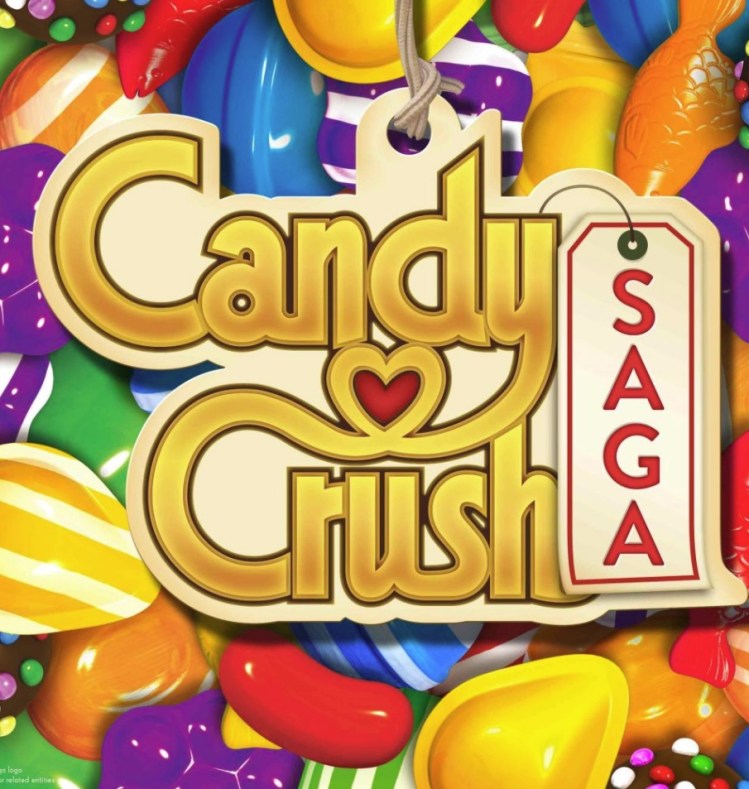Candy Crush Saga is the most popular mobile game in the U.S. after a dramatic comeback in the third quarter. As the mobile game crossed its fifth anniversary this week, its tally has crossed 2.73 billion sugary downloads.
In the third quarter that ended September 30, the match-3 game generated more than $250 million in revenue, up 97 percent from the same period a year ago, according to measurement firm Sensor Tower. More than 1 trillion game rounds have been played in the game since its launch, and 350 trillion candies have been swiped to date. At this rate, the $5.9 billion that Activision Blizzard paid to acquire King in 2015 looks like a deal.
Riccardo Zacconi, CEO of King, has been there from the beginning. Candy Crush Saga was one of 200 games that King created on its skill-based web site. The company began methodically converting those games to run on the Facebook Desktop, and the ones that were successful were converted to mobile. Candy Crush Saga did well on Facebook, but it really took off on mobile. It has been in the top-ten grossing apps for four years now. King continuously updates the game, which has 2,800 levels now.
Candy Crush Saga has a social media fan base of 80 million. That’s not bad for a game made with a tiny team led by Sebastian Knutsson in Stockholm, Sweden. King now has more than 2,000 employees worldwide and more than 293 million monthly active users. And it has spun out new games like Candy Crush Soda Saga and Candy Crush Jelly Saga. It even has its own game show. For the fifth anniversary, King launched a bunch of in-game rewards for players.
Here’s an edited transcript of our interview.
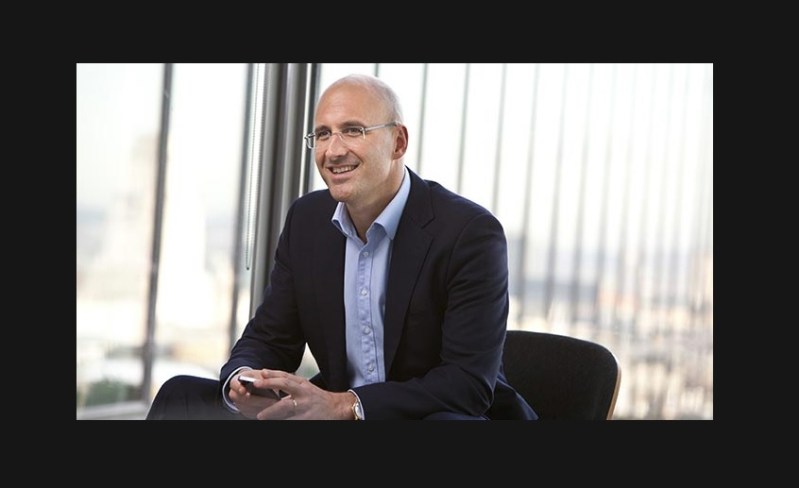
Above: Riccardo Zacconi, CEO of King.
GamesBeat: Why have you stayed with this so long, given that it’s been so successful? Some other people might decide to take it easy after this kind of success?
Riccardo Zacconi: [laughs] Well, it never stops, you know? There are always opportunities ahead that you want to take. A lot to do. There’s even more out there in the planning phase.
GamesBeat: What do you think here at the fifth anniversary of Candy Crush Saga?
Zacconi: It’s amazing. If you look at what we’ve accomplished, this year has been extraordinary. It’s the third quarter of growth for the company in bookings over all, and Candy specifically has done extremely well. Mobile is growing. It’s been the highest ever mobile growth in bookings. The franchise is doing amazingly well. We’re very pleased with how the team is done.
Of course, you can’t sleep. There’s a lot more we need to do in terms of innovation and thinking about the next level. But the team is kicking ass.
GamesBeat: What sort of tweaking are you guys doing that makes this game do so well in its fifth year? Is it just advertising it to the right people? Is it getting players to come back?
Zacconi: First of all, it’s focusing on the players who are in the game, keeping them entertained, surprising them every day. That’s the essence of what we’re doing. We are in a business where you don’t pay a subscription. You don’t have to pay anything to play, in fact, and so the barriers to exit are extremely low. Therefore, we need to keep them entertained every day. It’s surprising the user in the three minutes they play, whenever they have a break, and when they come back every time they come back to something fun.
We started by launching, every two weeks, a fresh level. Now we’re doing those every week, at least. Every day we’re releasing new content that’s time-limited. If you don’t come today, or this week, it’s not there anymore. You have to play today. We’re continuously innovating in the live game, releasing new features. We never stop offering new content to our players. That’s the essence of what we do.
We found out that it’s so much easier to reach out to players who are active today in the game, rather than offering a new game. Of course we’re working on new things. About 50 percent of our capacity is focused on new things. But the players are there today in our game, and that’s where we have a big opportunity. That’s what we’re working on.
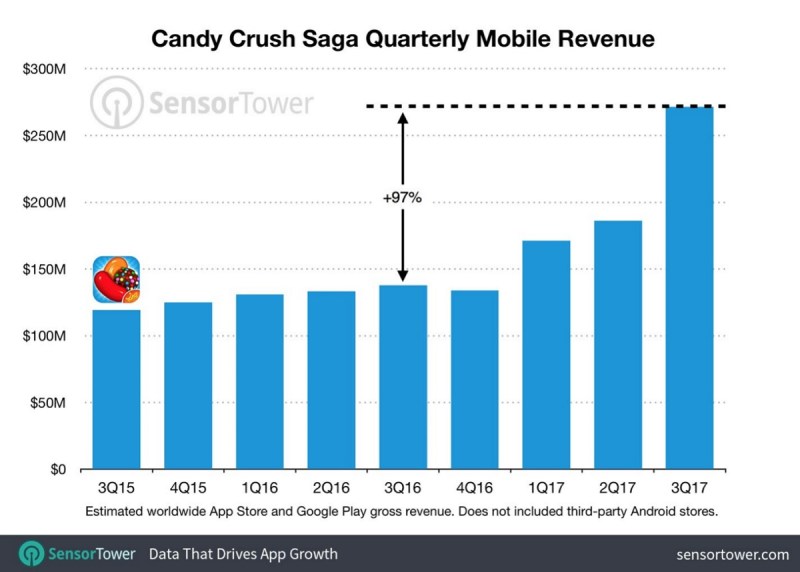
Above: Candy Crush Saga revenues grew 97 percent from a year ago in Q3.
GamesBeat: It certainly looks like you can’t take this for granted. Other games have started to slip in the stats, and they’ve been doing less advertising. It seems like things people thought would last forever can still be pulled down by gravity.
Zacconi: That was the initial assumption of the market, if you think back to when we went public. Certainly we’ve disproven that. It’s taken us a lot of work to come up with content that makes sense for our players. That’s what we also see from Activision and Blizzard. They believe in their franchises, in an IP that’s going to stay there forever and grow. That’s our strategy.
GamesBeat: Going back to the beginning, you had a lot of games on the web. You put them on Facebook as well. Eventually you moved to the focus on mobile games. Do you credit that process with surfacing Candy Crush as the ideal mobile game?
Zacconi: Absolutely. It’s not luck that brought us here. It was a lot of hard work. We developed more than 200 games covering all different aspects of casual, with all different genres and variations in those genres. We learned a lot with each game. Candy Crush, match three—we didn’t invent the match three genre, but we innovated considerably in that genre, both in the gameplay and in the framework around the gameplay.
Before we launched Candy Crush, casual was already the most popular genre. The most players were playing casual games, most of them women. But no company has ever managed to take a game with such big reach in casual to this level of commercial success. That success was created based on creating customer value in mobile. The roots of this are in a very deep understanding of casual and the experience we built on to get there.
GamesBeat: How much do you think about originality, given that the basic criticism of Candy Crush — it wasn’t the first match three game, and therefore it’s not original?
Zacconi: In our industry it’s very difficult to succeed, have this level of success, if in the eyes of the beholder, in the eyes of the player, the game doesn’t stand out. As I say, we didn’t invent the match three genre, but we managed to create a user experience that really stands out. It stands out so much that there was another company with a very successful game, a market leader by far, and we went through the roof and took that number one position in terms of usage, number of players, and revenue.
You don’t get there unless you innovate. We have innovated in gameplay, in the business model, in the way you play with other people. We’ve innovated in the platform. No one else before us offered a casual game you could play across all platforms, fully synchronized. That was another reason for our success.

Above: Candy Crush Saga now belongs to Activision.
GamesBeat: You came out with other related titles in the Saga series. How did it turn out that those games didn’t necessarily cannibalize the success of Candy Crush?
Zacconi: First of all, we have two game IPs in the match three genre, with Farm Heroes. That complements, because you have a kind of collection mechanic in there where you have to reach specific targets. We have the clicker, with Pet Rescue, and the bubble shooter with Bubble Witch Saga. We know that players in casual tend to play several different genres, not just one, so we’ve focused on the genres that are the most promising, the most popular, and at the same time we’ve also doubled up in the key genre, which is match three.
GamesBeat: Your studios are doing some new things. You’re working on Call of Duty. Are you enjoying that? It seems very different.
Zacconi: We’re enjoying working with Activision Blizzard. They’re super experienced with some of the most amazing IPs. I was there three weeks ago and we met with everyone. Specifically we met with Activision Publishing guys and the Blizzard guys. It was an incredible honor to meet all the founders of Blizzard. It’s really amazing. There’s so much history and so much knowledge in those other genres. When we work on Call of Duty, it’s something where we can profit from their years of experience.
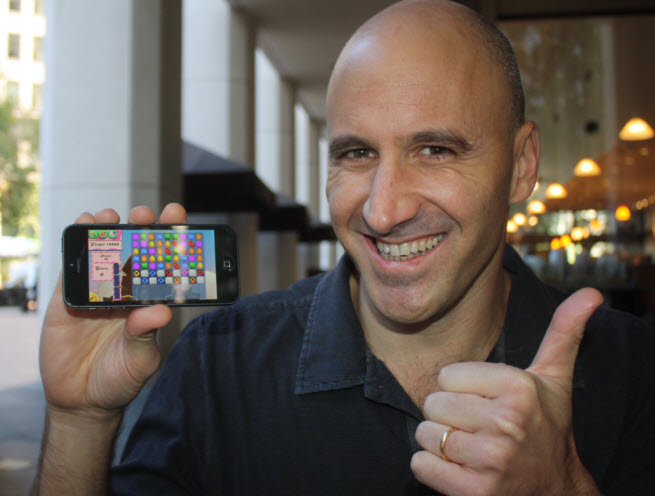
Above: Riccardo Zacconi, King CEO, in 2014.
GamesBeat: You have a lot of luxuries that a lot of other game companies don’t know, but I’m sure you also have some difficult choices. How do you think about decisions around where to spend your time and what to do next?
Zacconi: One thing we have learned from the Activision Blizzard guys that’s very important is focus. Among all these choices, we focus first of all on our core IP, on Candy, and number two, on our core casual players and the games they enjoy. Third, when we move into other genres that are new to us, like mid-core, we focus on specific bets. Call of Duty is one of those. We’re very focused in our approach. We take risks and we experiment, but we’re very focused in that experimentation.
GamesBeat: When you think back to being a smaller company, do you feel that anything is different now that you’ve grown?
Zacconi: Well, in many ways things are different, because we’re 2,000 people now. When we started there were six of us. [laughs] But we’re trying to keep—if you think of development over time, strategies change and adapt. You have to adapt. People also change. Processes change. But one thing we’re trying to keep stable and nurture and build and grow is the culture. That’s the piece that’s changed the least.
It’s a culture of working together, not to compete internally. It’s a culture based on mutual respect. It’s a culture of putting the user first, the player first, and doing what’s right for the player from their point of view. It’s a culture also of innovating, of having something that really stands out. We believe in blue versus red waters. We’re trying to come up with something that stands out. If the product is good, then marketing is easy. Otherwise it’s very expensive.
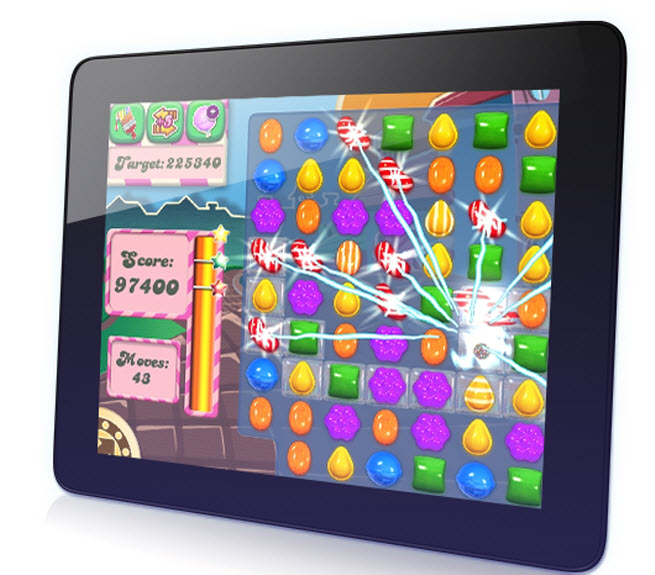
Above: King’s Candy Crush Saga for mobile devices.
GamesBeat: Now it doesn’t make as much sense to have the 200 web games as trial balloons.
Zacconi: The model we had before was a bit different, where the fresh content we were launching wasn’t so much in terms of new levels and new features and so on, but was more focused on surprising our players, launching new games that you could only play for three minutes. One-level-only games. It was very difficult to innovate around level design in a one-level game. We of course innovated with features and so on. But that model allowed us—I think we had six people focused on developing a game for maybe four or five months. It was a relatively small investment. We could go through a lot of different games and gameplay and identify some good ideas. We used that to get to the next level.
GamesBeat: Are there tools that exist today that make your work easier than back then?
Zacconi: Oh, yeah. Mobile has changed a lot. It’s changed both in terms of interaction with the player– now it’s a one-on-one relationship. Before, a computer was used by several different people. It makes the gameplay even more intuitive. The game genres we have are perfectly suited for the small screen and the single user. Another big change was the ability to do microtransactions on mobile. Before, the minimum transaction was much larger. The last thing is that before, not everyone used a PC. But everyone now has a mobile device. The opportunity is much bigger.
GamesBeat: What do you think of the game industry now and how it’s evolved, particularly in mobile?
Zacconi: As usual, when there’s a new platform and that platform grows, you grow with the platform. You’re on an elevator. The elevator, in the case of mobile, was very fast. Now, in some ways, the mobile industry has consolidated. There are many more competitors in the market. I think there are 2 million apps in the store now? There’s much more competition.
If you look at the free charts and the top-grossing charts, the free charts tend to change very frequently, while the top-grossing charts are very stable. It’s more difficult now to get visibility than it used to be. If you’re at the top, you have an advantage because you build new users on top of your existing user base, and because you can reinvest your revenue in marketing and in the product. The level of polish in games now is much higher than it used to be.
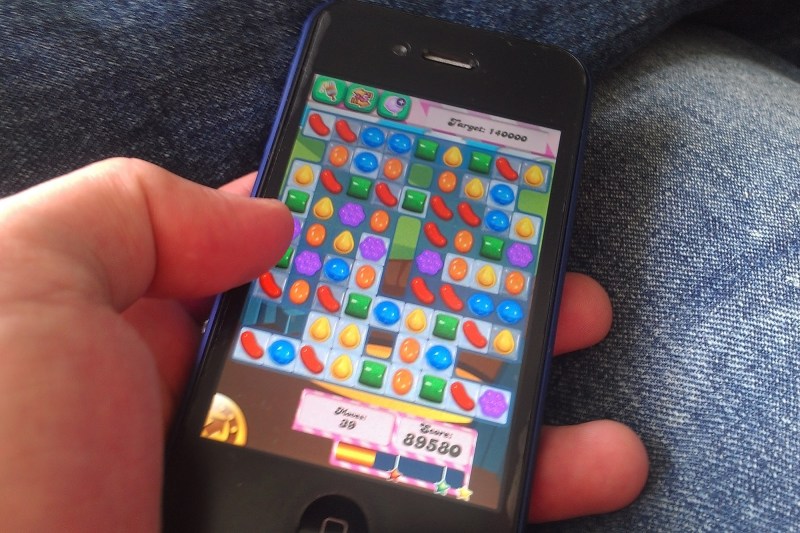
Above: Candy Crush Saga
GamesBeat: What would be your advice to young people coming into mobile games?
Zacconi: My advice is to innovate. Focus on standing out with your product. If you have marginal improvements on something that’s already proven, that’s actually very difficult. If you innovate and come up with something outstanding, there’s always room to break through. That applies to anything, not just to games.
GamesBeat: Any other thoughts you’d like to mention on this fifth anniversary?
Zacconi: The key thing is to thank my team, fundamentally, and our partners. This is a very good incentive to look at the next 10 years and focus even more than ever on creating great product experiences. If you do that, it really pays off. The moment when you don’t, it can go very fast. As soon as you don’t focus on creating the best user experience, if you’re too happy about what you’ve achieved, if you don’t continually challenge yourself to innovate and surprise your players, you’re out.
GamesBeat: I saw you have some players in Antarctica.
Zacconi: Yeah, at some point we checked. I think there were three players there. At some point we found an island with a bunch of people living on it that was the smallest country on which Candy Crush was being played. It’s pretty impressive, how global Candy has become.
One of our funniest experiences was in Hong Kong, when we launched back in 2013. I was there on New Year’s Eve, walking around outside, and everyone was playing Candy Crush. I could talk to strangers and they’d ask for more lives. It was pretty cool.
